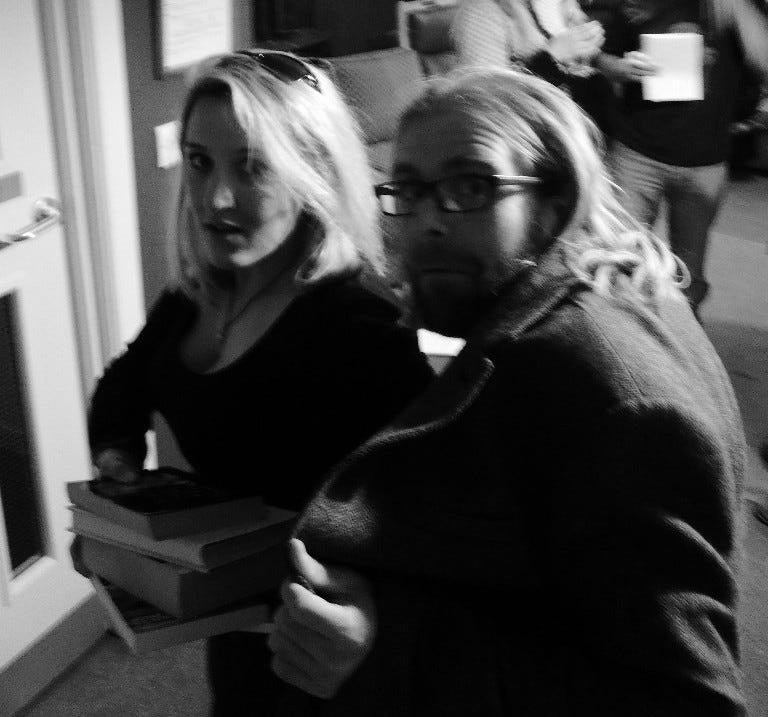It's not the work, it's the network

Happy Friday!
What's the most important element in your success? Is it how much work you do, how cheap, how quick or how well?
I'm writing something a bit different this week, inspired by an illuminating conversation that's been unfolding over the last few weeks between myself and a couple of writers on my blog. We were discussing in the comments what options there are for new writers trying to publish for the first time.
Nina Davies, working on a book about a group of British expats in Spain, told us about her positive experience with mentoring service Gold Dust. The idea is simple: writers pay other writers to advise them on the development of their writing. Nina said it was “like going to University again, but with a private tutor”. I also had a broadly positive experience of mentoring with The Literary Consultancy.
Paul Timblick then told us that he'd invested in a mentor when writing his Unbound-published book, No Lipstick in Lebanon. He then added, “Indeed, anything that improves your writing and also increases your network of literary contacts must be considered.”
That was the inspiration for these thoughts.
I'm beginning to suspect that your network is more or less everything in the writing world – actually delete that – your network is more or less everything in the world full stop. And, in a way, that's exactly as it should be.
Yes, some people will have an advantage because of who their parents are, where they went to school, or where they were born – but the idea that life is a game played on a level playing field is a fantasy. Of course, we all have a responsibility to work to level the game where we can, but we must also make do with what we have now.
At least your network to some extent represents who you are, how you carry yourself and, simply put, whether people want to do business or spend time with you. For me, that's not a bad correlate for success in life.
It goes without saying that the work we do must be of a good enough standard. But that's only one element in deciding whether people will hire us to do the job – or in this case read our books. From the reader's point of view, there are so many great people doing great jobs that the only thing that distinguishes one writer from another is whether you've come across them or not. And that, for better or worse, is 100% down to the writer's network.
Think about it from the perspective of an electrician. Every electrician in the UK must be on a register that guarantees their work is of a good enough standard. It shouldn't matter who knows whom: the best electricians shall rise to the top. Yet, people still prefer to find their electricians by recommendation from someone in their network – and, quite frankly, fair enough. Any electrician, it follows, must spend at least as much time keeping up their network as they do actually fixing your lights. It's not the work, but the network that keeps them in business.
Because humans are social animals, this network rule holds true in almost every sphere of existence. We don't usually go up to strangers in the street and ask, “Hello, will you be my friend?” We usually meet our friends, lovers, wives and husbands – almost everyone who matters in our life – through introductions from old friends, acquaintances or colleagues. It's not our work, it's our network.
Naturally, it's the same for writing.
I've been learning this the slow way. In 2012, I went on an Arvon Foundation course in comedy writing. It was led by David Stafford and Christopher Douglas, both established comedy writers in theatre, television and radio. The value of the course, however, was not in the pearls of wisdom they scattered before us swine, nor even in the words I cobbled together while staying at that beautiful Shropshire farmhouse. The value of the course was entirely in the relationships I established there.
It was on this course that I met my comedy writing partner Beth Granville. I won't make a saga out of our story, but after four years of writing and networking (mostly by Beth who now needs a new liver) BBC Radio Wales have commissioned a whole series of our sitcom Foiled. I can't begin to express how exciting this is – getting paid to write jokes all day!
But where did this success come from?
Of course, nothing would have happened without us writing a script to pitch. But even the greatest script in the history of radio is going nowhere but your bottom drawer if you don't have a network that believes in you. Among the first people to send his congratulations was Christopher Douglas, our tutor at that auspicious Arvon course way back in 2012. It's not our work - that's just the start - it's our network.
So my advice – to myself as much as anyone – is to cultivate your relationships and treasure them above all else. Nothing in life, not even your birth, comes out of nowhere like an unmotivated deus ex machina – no learning, no love, no laughter. It's all from our networks.
Allora! Thanks to Nina and Paul, special thanks to all of you who've supported Foiled over the years – and thanks again for reading this far.
See you out in the network!
d

